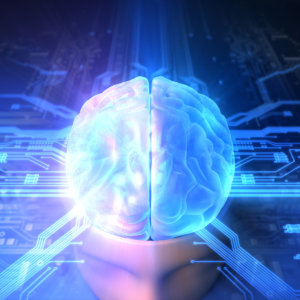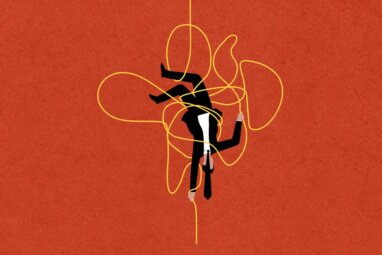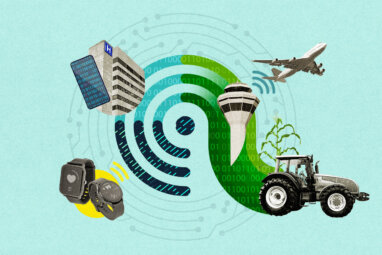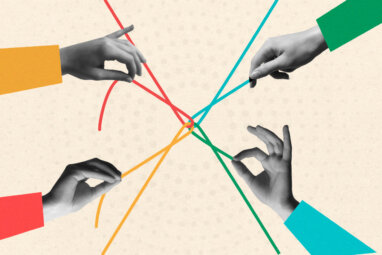How Human-Computer ‘Superminds’ Are Redefining the Future of Work
Virtually all human achievements have been made by groups of people, not lone individuals. As we incorporate smart technologies further into traditionally human processes, an even more powerful form of collaboration is emerging.
Topics
The ongoing, and sometimes loud, debate about how many and what kinds of jobs smart machines will leave for humans to do in the future is missing a salient point: Just as the automation of human work in the past allowed people and machines to do many things that couldn’t be done before, groups of people and computers working together will be able to do many things in the future that neither can do alone now.
To think about how this will happen, it’s useful to contemplate an obvious but not widely appreciated fact. Virtually all human achievements — from developing written language to making a turkey sandwich — require the work of groups of people, not just lone individuals. Even the breakthroughs of individual geniuses like Albert Einstein aren’t conjured out of thin air; they are erected on vast amounts of prior work by others.
The human groups that accomplish all these things can be described as superminds. I define a supermind as a group of individuals acting together in ways that seem intelligent.
Superminds take many forms. They include the hierarchies in most businesses and other organizations; the markets that help create and exchange many kinds of goods and services; the communities that use norms and reputations to guide behavior in many professional, social, and geographical groups; and the democracies that are common in governments and some other organizations.
All superminds have a kind of collective intelligence, an ability to do things that the individuals in the groups couldn’t have done alone. What’s new is that machines can increasingly participate in the intellectual, as well as the physical, activities of these groups. That means we will be able to combine people and machines to create superminds that are smarter than any groups or individuals our planet has ever known.
To do that, we need to understand how people and computers can work together more effectively on tasks that require intelligence. And for that, we need to define intelligence.
What Is Intelligence?
The concept of intelligence is notoriously slippery, and different people have defined it in different ways. For our purposes, let’s say that intelligence involves the ability to achieve goals.
References (15)
1. R. Brooks, “Artificial Intelligence Is a Tool, Not a Threat,” Rethink Robotics (blog), Nov. 10, 2014, www.rethinkrobotics.com.
2. David Ferrucci, email to the author, Aug. 24, 2016. Ferrucci led the IBM team that developed Watson.






Comment (1)
Hadi Taheri